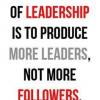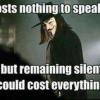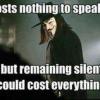Nigeria Union of Journalists
Baale Ologuneru Ibadan Nigeria confers Oyo NUJ Chairman with Chieftaincy Title
- By solomon2day
- On 10/02/2023
- Comments (0)
- In News
The chairman of the Oyo state council of the Nigeria Union of Journalists(NUJ), Alhaji Ismail Ademola Babalola will be conferred with a chieftaincy title on Saturday 18 February, 2023 by the, Baale of Ologuneru, Ibadan, Oyo state Nigeria.
According to the invitation to guests, the NUJ chairman will be conferred with the title,Agbaakin Baale of Ologuneru while his wife, Monsurat Ajoke will be conferred with the title Yeye Agbaakin Iyalosde of Ologuneru.
The event which comes up at the Baale's palace in Ologuneru will be followed with the reception for invited guests at an event center in the conmmunity.
Alhaji Babalola was returned unopposed for a second term of three years by journalists in the state.
In another development, concerned journalists in the state have continued to express reservations over the practice of the profession in the state and the infiltration of the profession by criminal elements, stressing that a lot has to be done for the profession to return to the front seat.
They appealed to the NUJ executive to carry out a major reform in the union as a step towards ensuring that the worried public have confidence in professionals.
The Role of Media Towards Changing Negative Narrative Associated with Persons with Disabilities by Prof. Sabitu Olagoke
- By solomon2day
- On 12/12/2022
- Comments (0)
- In The People Talk
 The language used in the media in relation to people with disabilities, may be an indication of whether social change has or would occur. For example, media stories about graduates or students wit disabilities often focus on the sacrifices of family and caregivers, instead of the students and the challenges there faced getting an education.
The language used in the media in relation to people with disabilities, may be an indication of whether social change has or would occur. For example, media stories about graduates or students wit disabilities often focus on the sacrifices of family and caregivers, instead of the students and the challenges there faced getting an education.
It is disheartening, therefore, that persons with disabilities are seldom covered in the media and when they are presented, they are typically damaging stereotyped and not properly epitomized.
It is not uncommon to see persons with disabilities treated as objects of pity, charity or medical treatment that have overcome a tragic and disabling condition or conversely, presented as champions who have accomplished great feats, to inspire the non-disabled.
The Editors, producers and programmers are influenced by their own thoughts of disability and what they trust will attract listeners. Equity and Equality challenges indeed!
The media, therefor re expected to: * Map out and circulate information to the masses-educate, entertain, act a platform for public service announcements.
However, the influence that the media holds over the society has not always been used for the benefit of society, particularly in relation to disability, where the media has continued to add to the discrimination of disabled people.
*Be a dynamic tool in creating awareness, refuting stigma and misinformation. It should be an authoritative force to change societal misconceptions and present persons with disabilities as individuals that are part of human diversity.
* In addition, to media coverage of issue of people with disabilities, access of people with disabilities to the media is equally an issue of concern. For example, most television programs do not have sign language interpretation. The implication of this is that people with disabilities rarely watch non-signed television programs.
The Way out
Though there have been some steps forward in removing social barriers to accessing the media, and fighting against unethical coverage of hidden impairments in the media over the last few years, there still remains a lot to be done.
The following should be addressed:
a) Focus on the Barriers Disability is sometimes covered as if it is remarkable that someone with a disability has been able to do the regular things like get education or job, or get married. This reinforces stereotypes that these things are not typical for someone with disabilities to do. Hence, viewpoint need to be integral to the story of the person and not disability.
b)Increase the percentage of people with Disabilities in Media Employment The under-representation of people with disabilities within the media workforce has seeming consequences on the control of the PWD community to influence how they are portrayed within the media and society. Increasing the percentage of people with disabilities in employment within the media industry would be a huge step towards removing stereotypes and empowering disabled people in the general community.
c)The digital revolution has opened new possibilities for Persons with Disabilities, we, therefore, need to ensure that access for them includes technological access. Assistive technologies could be explored in this regard.
d) Explore Opportunities International commemoration and other public events can offer outstanding opportunities to create awareness and conduct outreach to promote and highlight the concern of persons with disabilities.
e)Partnerships It is vital to include persons with disabilities and their organizations in preparing for any media and communications strategy or event.
As with all social change which needs drivers, and until there are more constructive representations of persons with disabilities living regular lives comparable to 'everyone else', there will continue to be incorrect, inappropriate portrayals. It is sacrosanct for the media to play effective roles in influencing public opinion about Disability. You can and you should.
Put the Right People in the Right Places-NUJ TO FG
- By solomon2day
- On 08/12/2022
- Comments (0)
- In News
The Nigeria Union of Journalists(NUJ) has called on the Federal Government to appoint the right people to the right places to ensure equality, justice and fairness.
This call was made by the Chairman of the Oyo state council of their union, Comrade Ademola Babalola on Wednesday at the Star Development Initiative Media discussion with Journalists in Oyo state in commemoration of the International Day for People with Disabilities in Ibadan.
''Churches and Mosques must be accessible to persons living with disabilities, the NUJ is accessible to people living with disabilities. We should put round pegs in round holes. We in the NUJ are calling on the Federal Government to put the right people in the right places.''
Comrade Babalola was represented by the Vice chairman of the union, Comrade Seye Ojo.
In her welcome address, the Chief Executive Officer of the initiative, Mrs. Grace Alezander disclosed that persons living without disabilities ought not to be pitied but treated fairly, adding, ''everybody matters, everybody counts. We want more. Anybody that says that you are limited does not see, they don't know how limitless your talents are. ''For us to achieve a healthy economy, everybody must be at the table. Disability does not make us lesser human beings, we are all human beings. We are all created differently, we must appreciate and understand every person with a disability.'' In his remarks, the Dean of the Faulty of Education, University of Ibadan, Prof. Oulfemi Fakolade stressed that inclusion was all about attitude, saying, ''without inclusion we cannot do what is expected of us as individuals. If every attitude is right, we can preach inclusion, but without inclusion there would be problems.''











